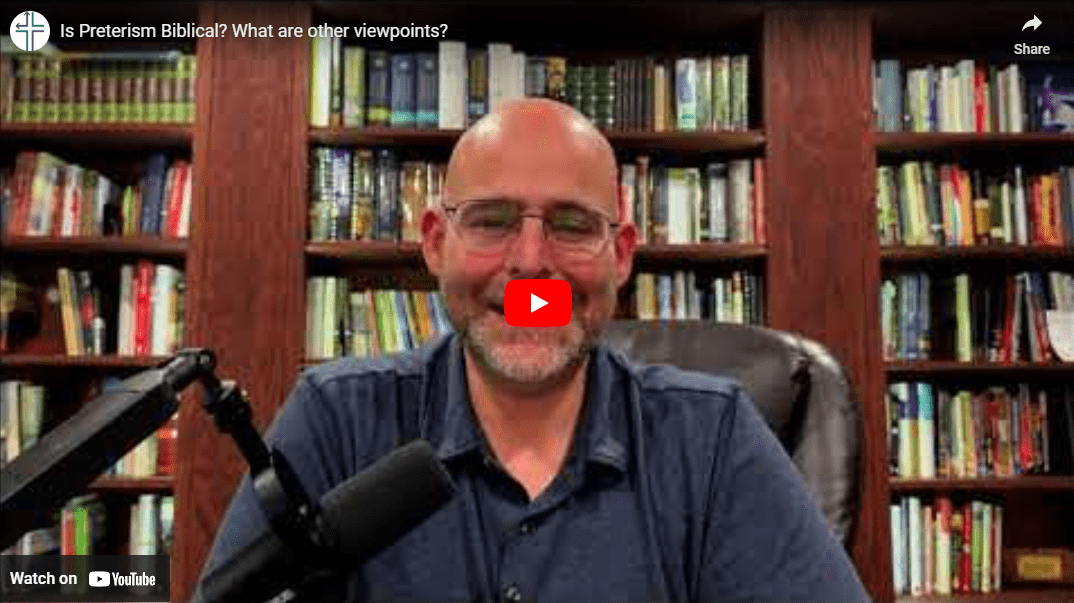Auto-generated Transcript:
Hello and welcome to another five good minutes, where I answer your theological questions in five minutes or less. Today’s question is all about the topic of Preterism and whether it’s biblical.
Preterism is a viewpoint of the end times based on a Latin term meaning “the past,” holding that many end-times prophecies have already been fulfilled. There are two main variants: full Preterism and partial Preterism. Full Preterism claims all biblical end-times events—even Christ’s second coming—have already occurred, leaving nothing else to be fulfilled. This view lies outside the bounds of biblical orthodoxy because it implies Jesus has already returned physically and there’s no future hope.
Partial Preterism, by contrast, holds that only some prophecies are fulfilled—for example, the Antichrist might be identified with the Caesars—while the second coming of Jesus and other events remain future. This view still falls within the realm of biblical orthodoxy, even though many (myself included) have disagreements with its specifics.
Historicism is another, older perspective often associated with the Reformers, interpreting Revelation as a timeline of church history. This explains why many Reformers identified the pope as the Antichrist. While not commonly held today, it was significant in their era.
The most popular view today is Futurism, which sees nearly all end-times prophecies—such as the future salvation of Israel, the Rapture, the Millennium, the Antichrist, the Tribulation, and the final judgment—as still ahead. Futurists generally interpret these prophecies in a literal, chronological way.
Lastly, there’s what theologian Sam Waldron calls “redemptive-historical modified idealism,” which is where I lean. This approach sees end-times prophecies in Revelation as a recurring pattern of good versus evil, played out throughout history until the final consummation. Rather than being strictly linear, Revelation retells the same epic battle from different angles, illustrating how history repeats itself under God’s sovereignty.
In the end, no single view has everything perfectly figured out—if we did, we would be God. Thanks for watching. This has been another five good minutes.

